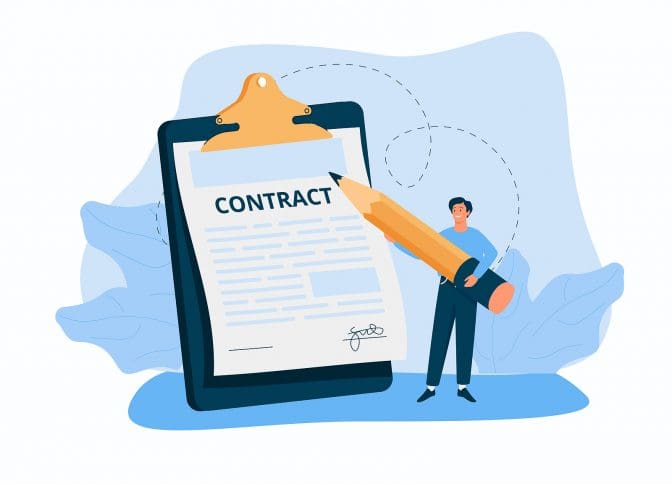
In many ways, being a freelancer is ideal. You get to make your own hours, choose your own projects, and negotiate your own terms. However, with so much freedom also comes an immense amount of responsibility. Freelancers are tasked with acquiring clients, managing operating expenses, growing their income, and ensuring their company’s compliance with relevant legal and regulatory statutes.
So if you’re a freelancer, you’re going to wear a lot of hats and you’re going to have to cultivate expertise in diverse domains to ensure that your freelance business survives and thrives in the long term. As a freelancer, perhaps the most important issues you will encounter are those relating to intellectual property (IP) law, contracts, and non-disclosure agreements (NDA).
Also on Mediabistro


IP and freelancing
When you’re a freelancer, perhaps the first and most important question you will ask is who owns the rights to your work product or intellectual property (IP)? IP is typically assumed to “belong” legally to the person who creates it. In such cases, you would be able to use your creations as you see fit, from repurposing your content for future clients or for displaying your work in an online portfolio to market your freelancing services.
However, there’s a strong likelihood that your clients will want to secure the rights to your work product for themselves. Commercial clients, in particular, are likely to have pre-established protocols for contracting with freelancers.
These are usually defined by the contracts which clients may require before commissioning your work and will define who owns the IP rights and how the work may be used both by the client and the creator in the future. In many cases, commercial clients will prohibit you from using the content for any purpose, including marketing. You may be unable to include it in an online portfolio, especially if the portfolio is available to the public. In addition, because the client’s contract in essence may stipulate that they have paid for ownership rights, they may well publish the content under the name of the client or their company.
Understanding contracts
As you probably surmised from the section above, when it comes to freelancing and intellectual property rights, the contract is everything. Again, it can generally be assumed that you retain ownership of the content you have created unless and until a contract or IP agreement is signed and ratified.
Nevertheless, if you’re doing freelance work, it’s far better to be safe than sorry when protecting your content. That means if you’re not prepared to sign over the ownership rights of your work product to your clients, then it’s a good idea to draw up a legally binding contract of your own. This should explicitly and comprehensively detail who retains the right to “own” the content you create, how the content can be used, exactly, and for how long.
The good news is that you can enjoy the protections of a legal contract without forgoing the opportunity to work remotely with clients who may be scattered across the globe. For example, you can securely send, receive, and sign legally-binding contracts using many different platforms, such as Adobe. When using digital contracts, though, it’s important to ensure that your documents cannot be altered once a digital signature has been attached.
Considering NDAs
When you’re freelancing, there’s a good chance that you’re going to be working with a wide range of clients, some of whom may even compete with one another. In light of this, you may find that your client requires you to sign a non-disclosure agreement (NDA) before a work agreement can be made.
In most cases, this is a reasonable request, as the work you do for your client is likely to involve sensitive information that is incumbent upon the client and the client’s partners to protect. Fulfilling the terms of an NDA may require you to do more than simply keep mum about what you learned about the company while working for them, however. After all, clients do take some risks when hiring a freelancer, especially if that freelancer works remotely and travels frequently.
Indeed, if you’re a digital nomad, then you’re probably going to need to take some additional precautions to ensure you’re complying with the NDA or privacy clauses that may be embedded in your work contract. You might, for instance, install a virtual private network (VPN) on your work devices to reduce the risk that your systems may be hacked and your data stolen.
The takeaway
The freelancer’s life is at once exciting, challenging, rewarding, and liberating. You have to develop skill sets far beyond the products you create or the services you provide. This includes mastering the nuances of intellectual property law, work contracts, and non-disclosure agreements. It may feel as if such topics are far outside your wheelhouse, but attending to these critical concerns can protect you and your business from lawsuits, hefty fines, or the misuse of your original content.










